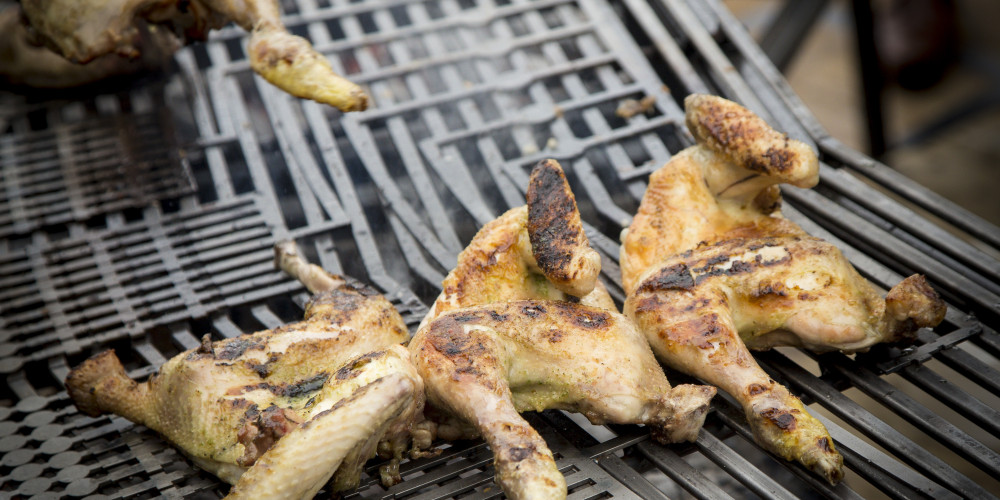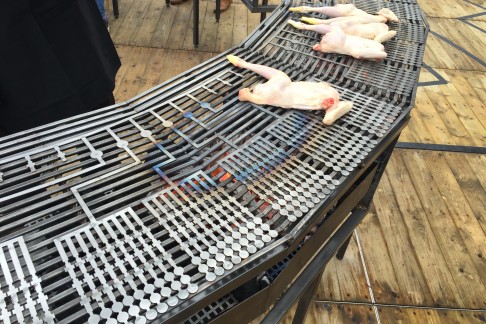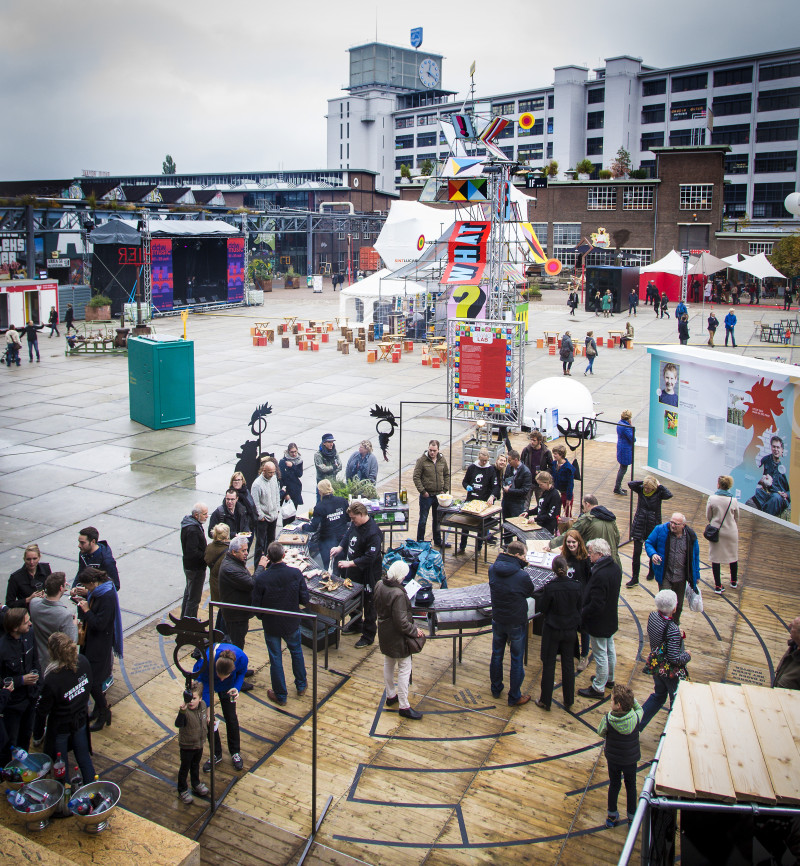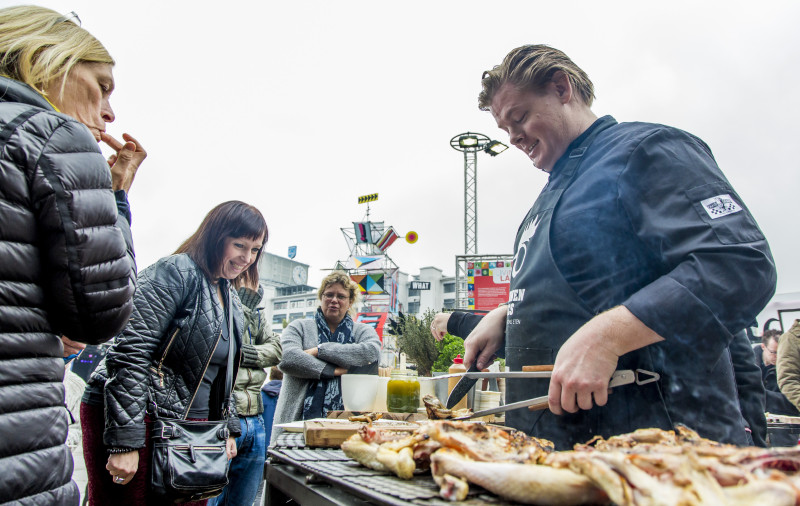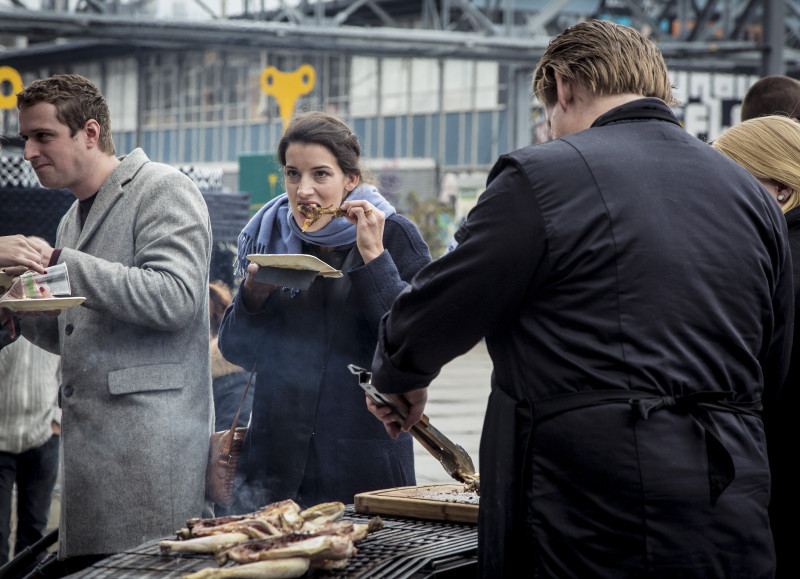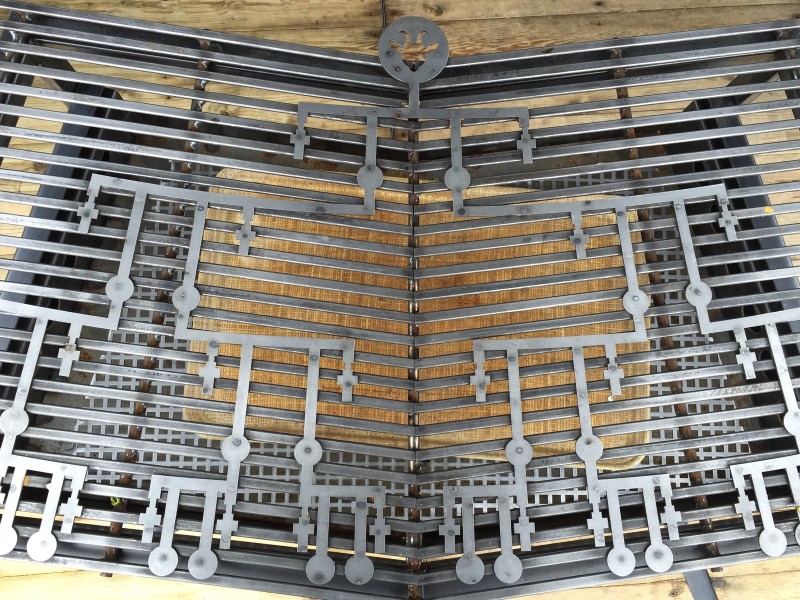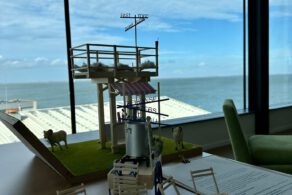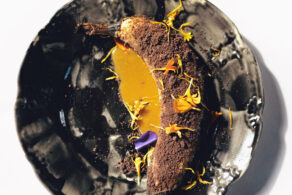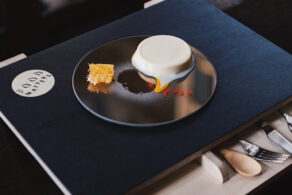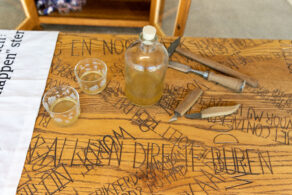Gepubliceerd op 23-11-2015
Male animals are a waste product of the meat and dairy industry. Males are regarded as waste and are killed almost instantly after their birth. The project ‘men meat’, commissioned by Transitieteam Brabantse Agrofood and YHM Brabant, denotes the consumer on their own responsibility regarding this complicated issue in the food chain.
The majority of us does not realise that there are animals reared to produce eggs, cheese and milk. Half of those animals are male. These roosters, bucks and bulls do not lay eggs or give milk, but they are part of the laying hens and milk cow breeds. Within twenty-four hours of birth, they are culled.
If we want to accept the consequences of our self-created need for goat cheese, we should consume the meat as well. With this project we do not want the stimulate increased meat consumption, but to highlight the by-products of the dairy industry.
But why is it, that we still do not want to eat male meat? This depends on several economic and cultural determinants. For example, male animals grow a little bit slower, are smaller in size than their female counterparts and are thus less efficient. Moreover, we are convinced that the meat of males is more chewy, and less tasty. Yet, there are many countries where they do eat the meat of male animals. These, and other, determinants made sure that such meat is disposed of, and that is something is not easily changed
There are certainly possibilities, but these rely on the participation of the consumer. We can make sure the demand for male meat is higher and change the chain gradually. Together with Studio 1:1 Foodcurators developed a ‘Male Barbecue’, where on the menu, products of male and female animals are side by side. With this barbecue we want to show the consumer that there is a possibility to alter the perception, and that male meat is okay to eat. On the menu were pairings of goat cheese and buck sausage, deviled eggs with a cockerel, and a glass of milk with a stew of bulls’ meat.
Commissioned by Transitieteam Brabantse Agrofood and YFM Brabant.

